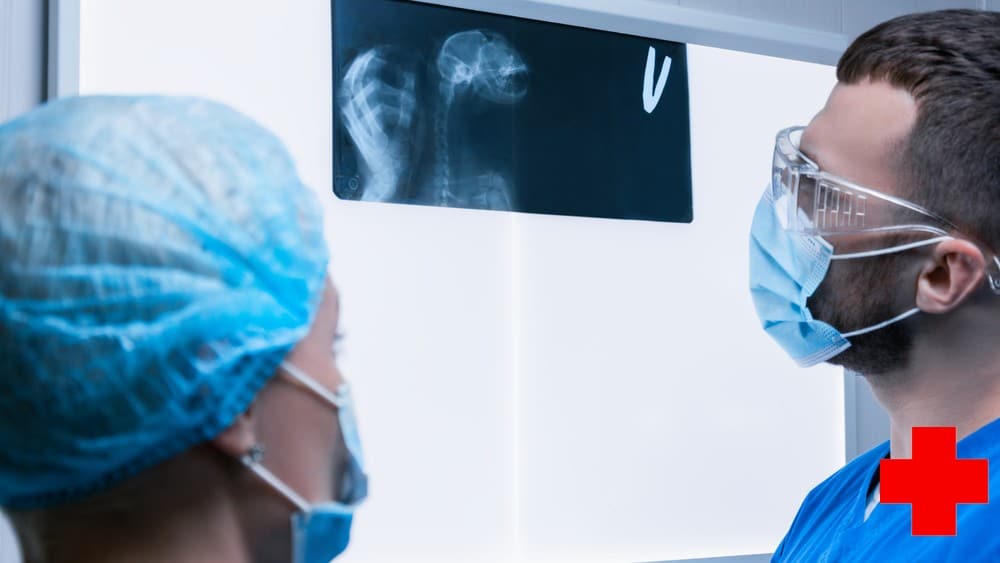Hello there, welcome to Nurse Code!
In this piece, we’ll break down the DNP programs.
We’ll help you understand what sets them apart from other Nursing programs, learn their duties and practices, and why DNP may be just the right Nursing degree for you.
We’ll shed light on the following:
- Introduction to Doctor of Nursing Practice
- DNP Admission Requirement
- Doctorate in Nursing Programs Career Outlook
- DNP Curriculum and Coursework
Without wasting precious time, let’s delve right in!
Introduction to Doctor of Nursing Practice

A DNP (Doctor of Nursing Practice), is the highest practice-based degree available in the area of nursing.
A DNP certification can lead to a lot of advanced clinical nursing responsibilities, including clinical research studies and managerial positions in inpatient care.
DNP programs have evolved throughout time to better accommodate the changing complicated healthcare landscape, ensuring that Nurse Practitioners can provide advanced hands-on care and achieve the greatest possible patient outcomes.
A typical DNP program lasts between twenty-four and sixty months.
The length or duration of the program is determined by a variety of criteria, including your existing educational level.
For instance, you may choose to participate in a BSN-to-DNP program if you are an RN (Registered Nurse) holding a bachelor’s degree in nursing.
The length of your degree will be determined by whether you study full-time or part-time.
Doctor of Nursing Practice Program
This DNP program at most Nursing universities teaches quality improvement, evidence-based practice, and healthcare systems leadership.
This clinical doctorate is for RNs (Registered Nurses) who desire to advance their leadership abilities, clinical knowledge, and nursing careers.
There are basically two-degree paths: one for Registered Nurses (RNs) who already have an MSN and one for individuals who want to start with an MSN or PGC.
Registered Nurses (RNs) with a newbie or entry-level nursing degree, such as a professional Master’s start-up Nursing degree or a Bachelor of Science in Nursing (BSN), who want to dramatically increase their range of practice should apply for the DNP program.
Areas of Specialization
DNP students can specialize in one of the following areas:
- Primary Care NP (Nurse Practitioner) for Gerontological/Adult health
- Pediatric Clinical Nurse Specialist
- Family Nurse Practitioner
- Adult/Gerontological Clinical Nurse Specialist
- Pediatric Nurse Practitioner Primary Care
- Nursing Informatics
- Nurse-Midwifery
- Nurse Anesthesia
BSN – DNP Program
Registered Nurses and Nurses with a Bachelor of Science in Nursing are eligible for these programs.
The benefit of this type of education is that you won’t have to waste time and money getting a master’s degree before getting your DNP.
Students in the BSN-to-DNP program may be eligible for a master’s degree as part of their DNP program.
Admission Requirement
- A BSN (bachelor’s degree in nursing) from a well-recognized and accredited program.
- On a scale of 4.0 GPA, applicants must have a grade point average of at least 3.0.
A fundamental statistics course should have been completed.
- Evidence of an eNLC license or a valid state nursing license with no restrictions.
- Twelve months of professional experience as a registered nurse, as determined by the track.
There are several tracks to choose from, each with its own set of experience requirements:
- Primary Care Nurse Practitioner in Adult-Gerontology: Twelve months of clinical experience as a Registered Nurse is required
- Acute Care Nurse Practitioner in Adult/Gerontology: One year of ICU experience as a Registered Nurse
- Nurse Practitioner in Psychiatric/Mental Health: One year of experience as a Psychiatric Registered Nurse
- Certification in Basic Life Support (BLS).
BSN – DNP Curriculum and Coursework
A minimum of 70-72 credit hours at the post-baccalaureate level are required for the DNP program.
To finish the degree, most specialties demand more than the minimum amount of credits.
MSN – DNP Program
Most MSN-DNP programs are post-master’s DNP or post-graduate.
Master’s Applicants must hold a master’s degree in nursing or a related field.
These programs are for RNs and APRNs who have finished their MSN and are ready to pursue their DNP.
The MSN-to-DNP program builds on your MSN skills and expertise.
Some MSN to DNP programs offer specializations.
Specializations include Nurse-Midwifery, Family Nurse Practitioner, Pediatric Nurse Practitioner, Adult-Gerontology Nurse Practitioner, and Acute Care Nurse Practitioner.
DNP Women’s Health Nurse Practitioner (WHNP) Programs
A DNP-WHNP program instructs nurses on how to provide comprehensive care to women of all ages.
This sort of DNP program focuses on reproductive and gynecological topics, as well as female primary care courses.
There are additional master’s degree programs in WHNP.
DNP Family Nurse Practitioner (FNP) Programs
A DNP Family Nurse Practitioner, or DNP-FNP, is an Advanced Practice Registered Nurse that specializes in family medicine (APRN).
Nurses interested in expanding their abilities in urgent, primary, ambulatory, and home care can consider DNP-FNP programs.
DNP Family Nurse Practitioner (FNP) Programs
A DNP in Nurse-Midwifery program is comparable to a WHNP in that it focuses on providing women with comprehensive gynecological care.
A master’s degree in Nurse-Midwifery, on the other hand, prepares Nurses to help in childbirth, do postpartum assessments, and provide prenatal counseling.
DNP’s AG-ACNP (Adult-Gerontology Acute Care Nurse Practitioner) Programs
Adult-Gerontology Acute Care Nurse Practitioner DNP programs equip students to work as Advanced Practice Registered Nurses in Geriatrics and Adult care.
DNP Retention Requirements
In order to continue in the DNP program, students must:
- Maintain a 3.00 GPA
- After being accepted into the DNP program, you must complete all coursework within five academic years
Once FNP clinical courses begin, continuous enrolment in the BSN-DNP program is necessary
- Demonstrate satisfactory professional advancement in the Nurse Educator Certificate program by using skills and knowledge
- Throughout the program, maintain current health and professional liability insurance, RN licensure, AHA Basic Life Support (BLS) certification, and all immunizations necessary by clinical agencies
- While grades are crucial, retention in the DNP program is based on a composite profile of a student’s ability to perform satisfactorily in both the academic and clinical aspects of the program
Any student may be denied enrollment or program continuation by the School of Nursing.
NP to DNP Programs
Nurse Practitioners are leading the industry in achieving better health policy for individual patients and communities at large in an increasingly complex healthcare environment.
To meet this demand, entry-level roles for NPs and other Advanced Practice Nurses will soon require a DNP (Doctor of Nursing Practice).
This is a considerable departure from the current MSN (Master of Science in Nursing) requirement.
Doctorate in Nursing Programs Career Outlook

Nurses with a DNP degree have a good chance of finding work in higher education.
Between 2019 and 2029, the need for post-secondary instructors is expected to grow by 7-9%, this is as documented by the US Bureau of Labor Statistics (BLS).
Nurse-Midwives, Nurse Practitioners, and Nurse Anesthetists earn an average of $117,700 per year, according to the BLS.
Financial Aid for Doctorate in Nursing Programs

For students pursuing a DNP (Doctor of Nursing Practice), financial aid in the form of grants, loans, and scholarships (both need-based and merit) is commonly available.
The federal government, nonprofit organizations, universities and colleges, private lenders, nurse groups, and others are all potential sources of financial aid.
You’ll most likely be eligible for one or both of the following as a graduate student:
- Grad PLUS Loan
- Direct Unsubsidized Loan
Benefits of a DNP

A DNP degree can help shape a person’s career in health care by strengthening knowledge, expanding options, and increasing performance.
With a DNP, Nurses can become innovative Practitioners capable of addressing complex health care issues.
The degree may assist graduates to advance in one of the world’s most crucial industries.
Advanced Skill Development
Earning a DNP may help nurses expand on MSN skills.
The advanced curriculum of the DNP can also allow students to specialize in areas such as Adult-Gerontology or Pediatric Nurse Practitioner.
Developing these skills in a DNP degree also helps to master organizational and economic competencies essential for senior roles.
In addition, improved clinical skills obtained in a DNP program may have a considerable influence.
Leadership Skills
Many of the DNP professions allow people to handle various areas of the healthcare process.
Leadership roles can range from Supervising Nurses to leading an institution as an executive, such as a Chief Nursing Officer (CNO).
Research
DNP graduates may be able to use their clinical expertise to research efforts that improve healthcare.
Because most DNP roles are practice-based, these professionals may be able to use research findings to inform their own health care initiatives.
Informatics
The emergence of IT has benefited health care in many ways, from aiding strategy formulation to improving doctor-patient relationships.
DNP graduates with superior informatics skills can help Nurses use IT to improve clinical and proactive patient care.
Top DNP Programs

Rush University School of Nursing
Rush University is a for-profit institution.
The College of Nursing has a January 2 application deadline and a $115 application fee for residents of the United States.
Full-time master’s program tuition at the College of Nursing is $1,034.99 per credit.
Rush University’s College of Nursing includes 75 full-time faculty members.
Johns Hopkins University
A public research university in Baltimore, Maryland, Johns Hopkins University, is a for-profit institution.
The School of Nursing has a January 1 application deadline and a $75 application fee for residents of the United States.
Full-time tuition for the master’s program in nursing at the School of Nursing is $1,737.99 per credit.
Johns Hopkins University’s School of Nursing has 85 full-time faculty members.
University of Washington
The University of Washington is a state-run institution located in Seattle, Washington.
The School of Nursing has a January 15 application deadline and an $85 application fee for residents of the United States.
Full-time master’s program tuition at the School of Nursing is $17,918.99 per year (in-state) and $31,025.99 per year (out-of-state) (out-of-state).
The University of Washington’s School of Nursing has 80 full-time faculty members.
Duke University
Ths private university in Durham, North Carolina, Duke University, is another program worth mentioning.
The School of Nursing has a December 1 application deadline and a $50 application fee for US residents.
Full-time tuition for the master’s program in nursing at the School of Nursing is $1,837.99 per credit.
Duke University’s School of Nursing has 90-92 full-time faculty members.
Conclusion

In the following years, the healthcare industry is expected to increase rapidly.
The US Bureau of Labor Statistics (BLS) forecasts a 50-52 percent increase in Nurse Practitioner jobs within ten years from 2020.
This is well above the average of all professions’ expected growth of 3-4 percent.
No doubt a Master’s Degree in Nursing can lead to a wider range of work prospects.
Even though an MSN (Master of Science in Nursing) may be sufficient for some of these professions, a Doctor of Nursing Practice (DNP) can equip students with the advanced knowledge and skill set needed to pursue more competitive career pathways in the sector.
A DNP does more than offer up high-level prospects that might not be available to Nurses with merely an MSN.
FAQs

How do I prepare for DNP school?
Be committed to a DNP program:
– Do your homework on DNP programs and their specialties
– Maintain a high GPA
– Keep track of your clinical experience
– Collect 3 clinical leader reference letters
– Create a captivating vision and personal goals statement
– Dress appropriately for the interview
How long is BSN to DNP programs?
A full-time BSN to DNP program usually lasts thirty-six to forty-eight months. Part-time students may be able to earn their doctorate in four years, but they may need up to seventy-two or eighty-four months to complete their studies.
How long do DNP Programs take?
DNP programs typically include 33 to 43 credits as well as at least 30000 clinical practice minutes. This can equate to twelve to twenty-four months of full-time coursework, which can be difficult to balance with a full-time nursing profession. A normal part-time curriculum involves twenty-four to thirty-six months of study.
How many DNP Programs are there in the US?
There are now 357 certified DNP programs, with 106 more programs in the works. Despite the fact that all of the CCNE-accredited schools provide great education, the lists below indicate World Report and U.S.News’ top five programs in the most popular DNP specialization areas.
How do I get into a DNP Program?
A Master’s degree from an authorized college or university. Applicants with a BSN and a Master’s degree in another health-related profession. Master’s transcripts with a high GPA. Possession of a minimum of 240 qualifying practice hours. Applicants must be licensed in the state where the DNP project will be completed.
Is a DNP the Same as a Nurse Practitioner?
A DNP is simply a Doctor of Nursing Practice degree, while a Nurse Practitioner (NP) is a designation given to a Nurse who has successfully completed the Nurse Practitioner clinical and didactic requirements and has at least an MSN degree.
What is a DNP Program Like?
Doctoral nursing programs that focus on practice, such as the DNP, were created to bridge the “quality chasm” by preparing graduates for the highest level of clinical nursing practice. Graduates are taught both nursing leadership and clinical abilities, which empowers them to manage interdisciplinary care teams, improve care systems, and much more.
What is the easiest DNP Program?
Samford University has one of the best online DNP programs in the country, which is ideal for Advanced Practice Nurses or Nurse Administrators who want to get their doctorate as soon as feasible.
Will DNP replace MSN?
The NONPF or National Organization of Nurse Practitioner Faculties stated in May 2018 that by 2025, all entry-level Nurse Practitioner education programs would transition from MSN to DNP.
Is a DNP program hard?
These courses are normally not difficult academically, but they can be difficult to get invested in. When must have made up your mind to step into the healthcare sector as a Nurse Practitioner, you don’t usually get thrilled or even think about these courses ahead of time. Early on, it can be difficult to understand the usefulness of these courses.
Are DNP Programs worth it?
Depending on your years of experience and specialty, a Nurse with an advanced degree can earn over six figures per year. One of the main reasons why a DNP is worthwhile is that it provides substantial financial benefits. A DNP earns an average of $104,400 per year or 52.67 per hour.
Are DNP Programs competitive?
In general, a good DNP program requires a competitive academic atmosphere and intense training, so if you want to be a successful doctorate student, be realistic about your abilities to spend the time.
How Many Months is a DNP Program?
The DNP program is a low-residency, online degree with a strong writing component. The 27-credit DNP program, which includes 500 hours of supervised practice experience, can be completed in 12 months of full-time study.
How long is DNP to Ph.D.?
This curriculum takes about thirty months to finish and consists of 38 credits. This is divided into 29 credits of coursework plus nine credits of dissertation.









